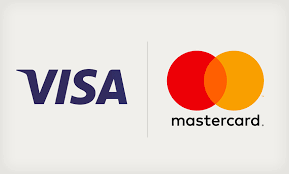Even if no-one really knows what the final outcome will be, businesses cannot afford to bury their heads in the sand when it comes to Brexit, says Partner Kevin Bunting in his latest article for Business East. It is hardly surprising that many businesses don’t know which way to turn when it comes to preparing for the UK leaving the EU. The worst possible course of action is to do nothing in the hope that the issue will go away; whatever happens, businesses which have any kind of trading relationship with Europe will need to take remedial action to continue that trade, and to avoid the potential cashflow and regulatory consequences of Brexit. Whether you are selling to countries in the EU, or sourcing materials or services from them, your trading relationship is going to change come what may. As a third country, those transactions will no longer come under the auspices of EU Directives, and different tax rules will apply, both of which could have severe consequences. Currently the majority of transactions between member states are carried out net of VAT; it seems likely that after Brexit that tax will have to be paid upfront meaning a supplier will need to charge VAT on a sale (or the customer will have to fund the VAT cost and reclaim it). Another issue related to corporation tax because a European customer may have a withholding tax obligation which crystallises by deducting the amount from a raised invoice. Both these issues could have severe cashflow implications, especially in low margin businesses, and therefore need to be reviewed now to determine if anything can be put in place to mitigate the problem. Many UK businesses also have a complex supply chain which is to some extent reliant on free movement between EU countries. While goods will still be able to move, even the Government’s own Yellowhammer planning acknowledges that there could be significant delays at borders. Should businesses that trade with the EU set up an EU-based subsidiary? There is no hard-and-fast answer to this, but it is certainly something which they should be considering, because it could allow them to trade within the EU without any danger of a withholding tax. This can be simple (and not costly), depending on the nature of the business. One word of warning, though: if you are considering doing this, you should move now. In the event of a no-deal Brexit, it’s likely that there will be a rush to set up EU-based subsidiaries, which means it could take considerably longer, and potentially there will be a premium to pay as well. Anyone who has traded with countries like China, Russia or even the US will appreciate how easy doing business in the EU is currently. Whatever your view of Brexit, once the UK is a third country, trading with EU members will be more difficult. Any business which doesn’t have a contingency plan in place risks considerable disruption to their business, crippling cashflow issues, and potentially even losing the ability to do business at all. The advice is clear: don’t bury your head in the sand, but act now to secure your business’s future. Have you got your number? In order to continue trading goods with EU member states in the event of a No Deal Brexit, VAT-registered organisations need to have signed up for an Economic Operator Registration and Identification (EORI) number – but fewer than half the companies that require one have done so. EORI numbers are a unique ID allocated to businesses which enables them to be identified by Customs authorities when doing business with other traders. In the event of a No Deal Brexit, companies without an EORI number will not be allowed to trade with EU member states at all. To try and prevent any disruption to trade, the government has confirmed it will begin automatically enrolling UK firms – they will be sent a number within two weeks. A rolling stone… Companies which sell digital content to consumers in the EU can currently set up a ‘Mini One Stop Shop’ (MOSS) registration, which allows them to collect VAT from other EU countries. In the event of No Deal Brexit the system will no longer be available. That could mean such businesses will have to set up a non-EU MOSS registration, or they may have to register for VAT in each of the EU countries where they do business. In the best-case scenario their bureaucracy will be doubled; in the worst-case scenario some businesses may have to have 27 different VAT registrations. How are your foreign language skills? Transitional Simplified Procedures If the re is no deal, UK businesses importing goods will need to apply the same procedures to EU trade that apply when trading with the rest of the world. However, the HMRC has introduced ‘Transitional Simplified Procedures’, designed to help businesses import goods from the EU in the short term. Without these TSPs, goods would not be released from customs control until a full import declaration has been made, and customs duty paid in full. TSPs will reduce the amount of information importers must give in an import declaration, and allow them to delay paying duty. Businesses need to register to use Transitional Simplified procedures. More details can found here.



